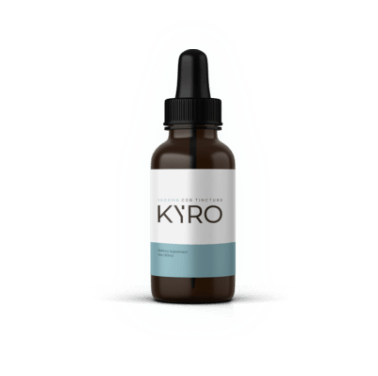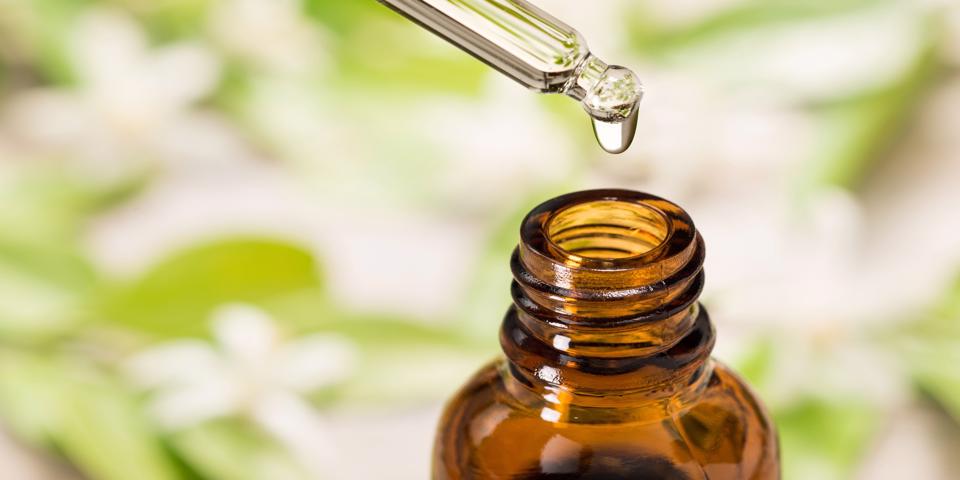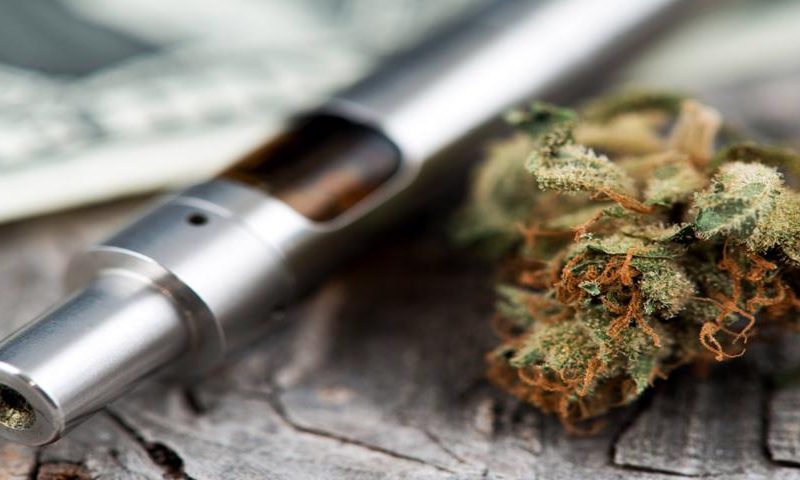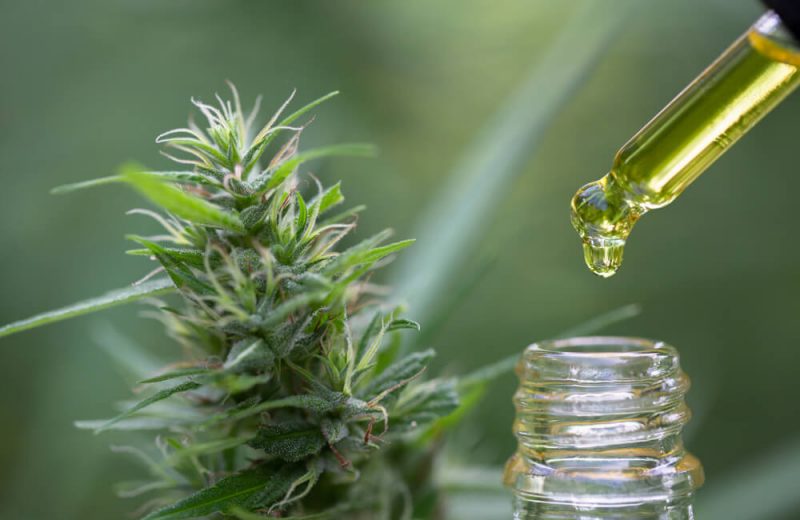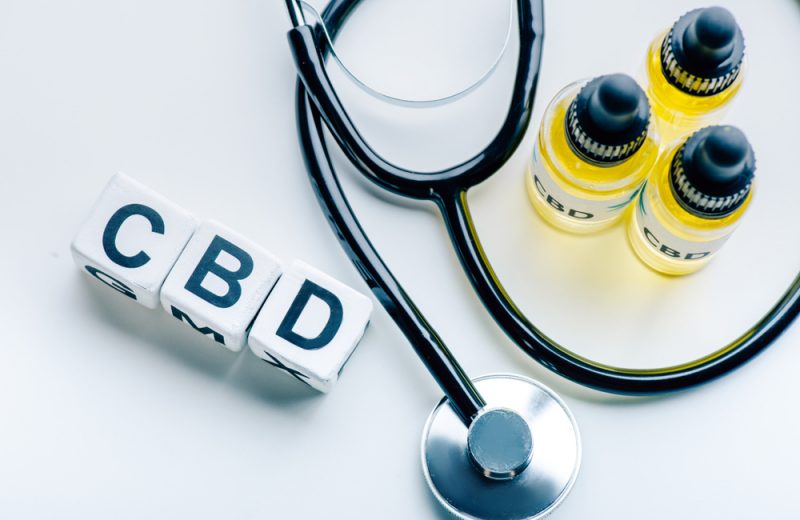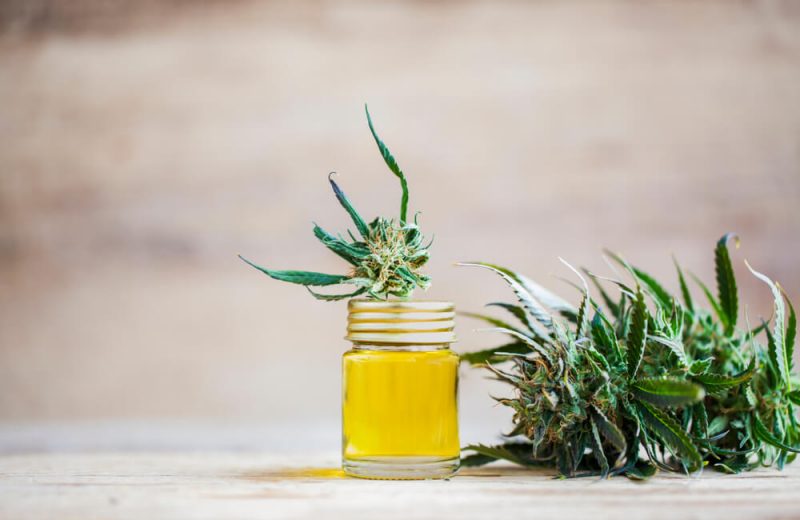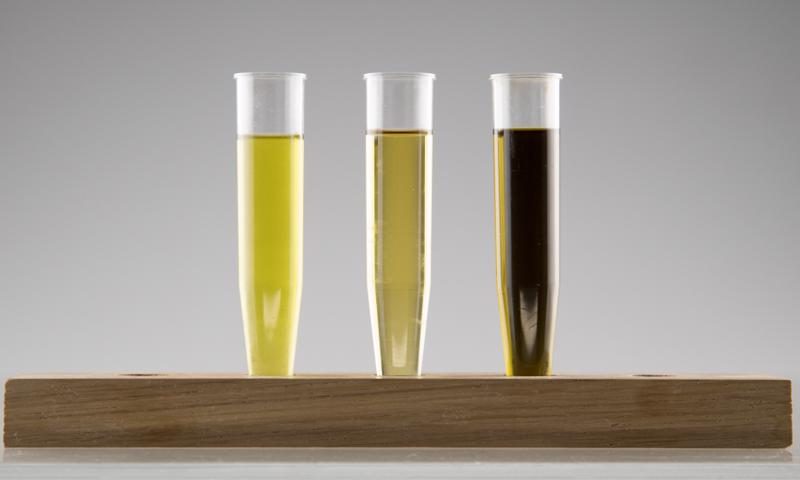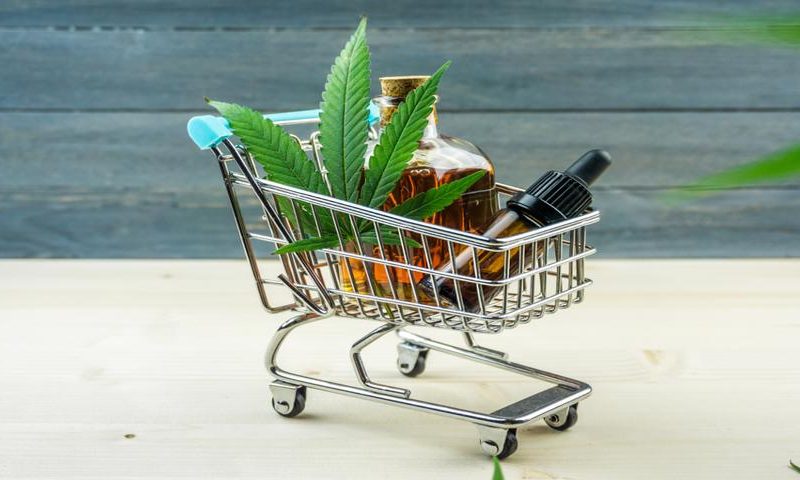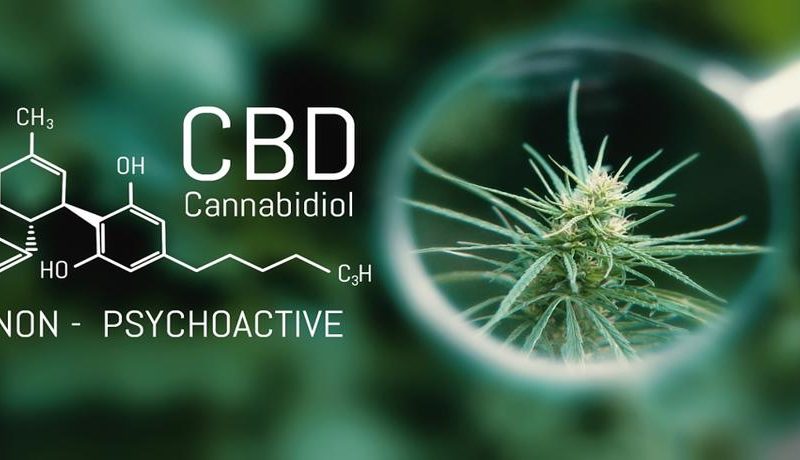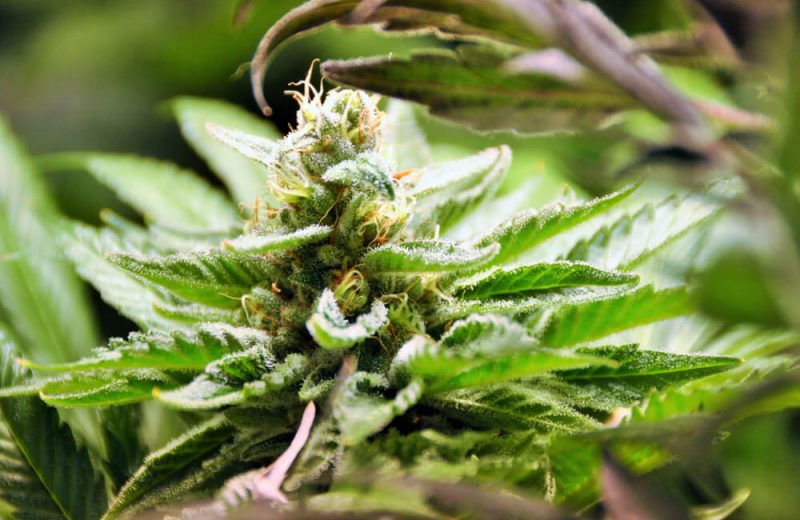If you haven’t spent the last five years on another planet, you’ve probably caught wind of the CBD craze.
Everyone is talking about it. Health influencers and alternative medicine advocates rave about the healing properties of “CBD oil.” Investors trip over themselves to pour money into CBD-related ventures. Older generations clutch their pearls about it being “legal marijuana” (spoiler alert—it isn’t).
Some bars serve it. Some people give it to their pets. Even doctors seem to be getting on the bandwagon, cautiously optimistic about the health benefits of CBD for persons of all ages—adults, the elderly, even children.
Meanwhile, CBD products are turning up on the shelves of your local grocery story. Some people even feed it to their pets.
What’s all the hype about? What is CBD oil, anyway, and what is it supposed to do?
This comprehensive guide breaks down everything you need to know about CBD oil, including:
- What is CBD oil?
- Where does CBD oil come from?
- How is CBD oil different from marijuana and other cannabis products?
- What are the financial implications of the growing CBD industry?
- What does the science say?
- How do people use it?
- How long does it take to kick in?
- What conditions can it allegedly treat, and how?
What is CBD Oil?
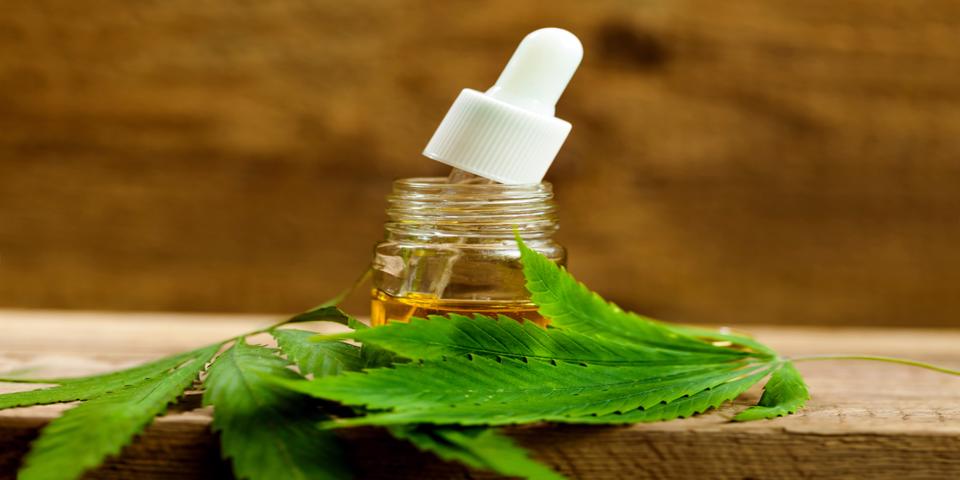
CBD oil is an extract derived from plants in the cannabis family, which includes hemp and marijuana.
The active ingredient of CBD oil is cannabidiol or CBD for short. CBD is one of over 100 identified cannabinoids, compounds found in plants from the cannabis.
Another well-known cannabinoid, delta-9 tetrahydrocannabinol (THC) is the psychoactive ingredient of marijuana, responsible for the famous “marijuana high.”
CBD, on the other hand, is not psychoactive and does not get you high. It is not addictive, and no adverse health effects from it have been documented.
While CBD is not psychoactive, it has endured a long and complicated history of prohibition and criminalization.
In 2018, the United States Federal Government legalized the production and sale of CBD oil, provided that the source was industrial hemp instead of marijuana and provided that the oil contained less than 0.3% THC by volume. No prescription is necessary.
Marijuana, by contrast, is still illegal at the Federal level, but many individual states have legalized the use of marijuana for medical or recreational purposes.
All cannabinoids, including CBD, are illegal in the US states of Idaho, Nebraska, and South Dakota as of 2019. Furthermore, the legality of CBD oil and other cannabis products varies widely throughout the world.
CBD oil can be rendered as a tincture or suspended in a carrier oil like hemp seed oil or coconut oil. CBD isolate is a product made from pure or nearly-pure CBD, while full-spectrum CBD oil contains other cannabinoids thought to be beneficial.
Where does CBD Oil Come From?
CBD oil can be derived from any cannabis plant, particularly hemp (a strain of Cannabis sativa), or marijuana (Cannabis sativa or Cannabis indica).
For CBD oil to be legal under US Federal law, it must be derived from industrial hemp, a plant grown primarily for its fiber.
CBD is found in terpenes, a substance similar to an essential oil. Terpenes exist in abundance in the trichomes, hair-like outgrowths that cover the bud of the plant. However, terpenes also exist in smaller amounts throughout the plant. Terpenes contain other cannabinoids, not just CBD.
The terpents get extracted from the plant by various methods and then distilled, collecting concentrated CBD along with trace amounts of other compounds.
Top producers of CBD include:
- Folium Biosciences (Colorado Springs, CO)
- Global Cannabinoids (Las Vegas, NV)
- HempMeds (Lindon, UT)
- Hemp Depot (Colorado Springs, CO)
- Stock CBD Supplements (Hauppage, NY)
- Kazmira (Watkins, CO)
How is CBD Oil Different from Marijuana?
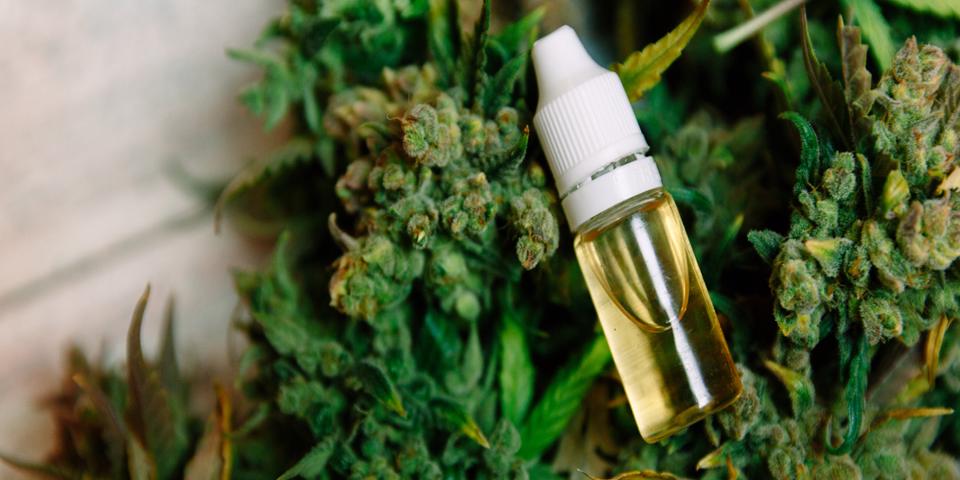
CBD oil can be extracted from marijuana plants, but it is not marijuana and can be extracted from other sources as well, like industrial hemp.
The marijuana used medically and recreationally, whether legal or illegal, consists of the whole plant or part of the plant, usually dehydrated or processed in some fashion.
Various treatments of marijuana, including smoking or cooking the dried plant, activate various cannabinoids, including THC, the compound that gets you “high.”
Users of marijuana also consume CBD, a cannabinoid abundant in marijuana.
CBD oil is the product of the distillation of terpenes to extract one particular cannabinoid, cannabidiol (CBD). It can be derived from marijuana or hemp.
CBD is legal at the Federal level in the United States as long as it originates from industrial hemp and the distillate contains less than 0.3% THC. Hemp naturally has low quantities of THC, to begin with, whereas marijuana contains high levels of THC. CBD remains illegal at the state level in several states.
Marijuana remains illegal in the United States at the Federal level, but several states have legalized it for recreational use, medicinal use, or both.
How is CBD Oil Different from Hemp Seed Oil?
Hemp seed oil is produced by cold-pressing hemp seeds. This cannabis product has never been criminalized.
Although it comes from the same plant, CBD oil and hemp seed oil are very different, with vastly different properties. It’s almost like comparing popcorn and whiskey—same ingredients, very different results.
Hemp seed oil has its own restorative, nutritional, antioxidant, and beneficial properties. It contains polyunsaturated fat, essential fatty acids, and may help fight eczema.
However, the popularity of CBD and other cannabinoids has lead to the phenomenon of “weed-washing”—products that contain hemp seed oil pitching themselves as “cannabinoids” or otherwise trying to attach themselves to the cannabis craze.
However, hemp seed oil contains no CBD or THC. Consumers looking for true CBD products should look for “CBD” or “cannabidiol” in the ingredients list and seek a reputable brand.
CBD Oil Industry Predictions
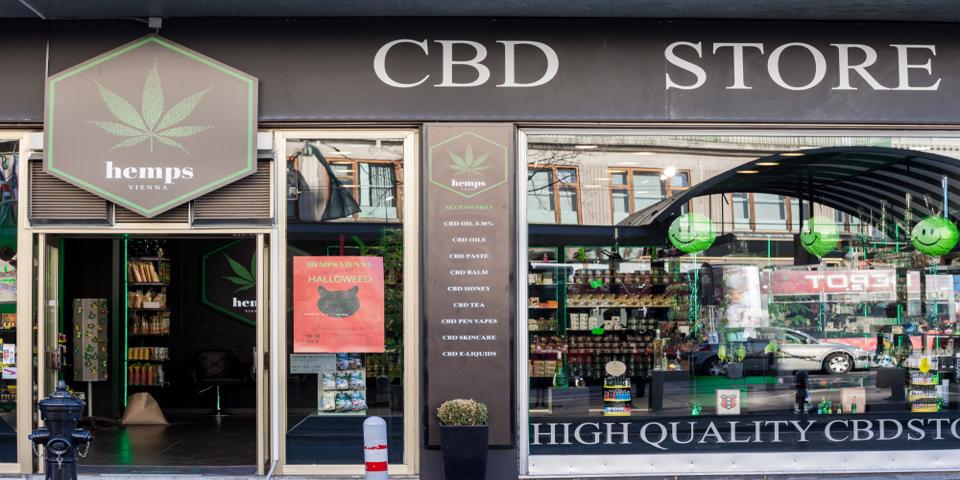
CBD has exploded as a commercial product since its legalization in the United States.
Up to 2015, the total CBD market tipped the scales at $202 million in sales, including:
- $112 million derived from marijuana plants
- $90 million derived from hemp plants
By 2020, the CBD industry is expected to balloon to $2.1 billion in sales, $450 million derived from hemp.
Sales are predicted to approach the $3.8 billion mark by 2023. The compound annual growth rate (CAGR) of the CBD industry between 2015 and 2023 is predicted at 38.45%.
Top players in the CBD boom include:
- Aurora Cannabis
- Cannoid
- Chineseinvestors.com
- CV Sciences
- Elixinol
- ENDOCA
- Gaia Botanicals
- Isodiol
- Medical Marijuana Inc.
- NuLeaf Naturals
CBD Oil: What the Science Says
Cannabis has been used therapeutically for thousands of years, before the dawn of science.
Doctors began experimenting with CBD in the 1980s. In 1988, doctors discovered that humans have an endocannabinoid system. The system consists of a series of receptors on the cell membranes, including the CB1 and CB2 receptors. When active, these receptors help the body maintain homeostasis (internal balance).
The CB1 receptor, especially common in brain cells, affects movement, coordination, emotions, pain, memories, and cognitive functions when activated.
The CB2 receptor, common throughout the immune system, affects pain and inflammation when activated.
The body produces certain cannabinoids naturally, known as endocannabinoids. These attach to the receptors and activate them, producing various effects.
Certain phytocannabinoids (i.e. plant-based cannabidiols, like those found in marijuana or hemp) can also bind to human endocannabinoid receptors. THC, for example, attaches directly to the CB1 receptors.
Scientists speculated that CBD might attach to one or both receptors, but discovered that it attaches to neither. Instead, it seems to encourage more of the body’s own endocannabinoids to attach to the receptors.
Early research studies have demonstrated the potential for CBD as a treatment for numerous conditions, as well as its potential as a supplement to make healthy people even healthier.
However, all experts agree that more studies are needed before scientific conclusions can be drawn about CBD and its effects.
How do People Use CBD Oil?
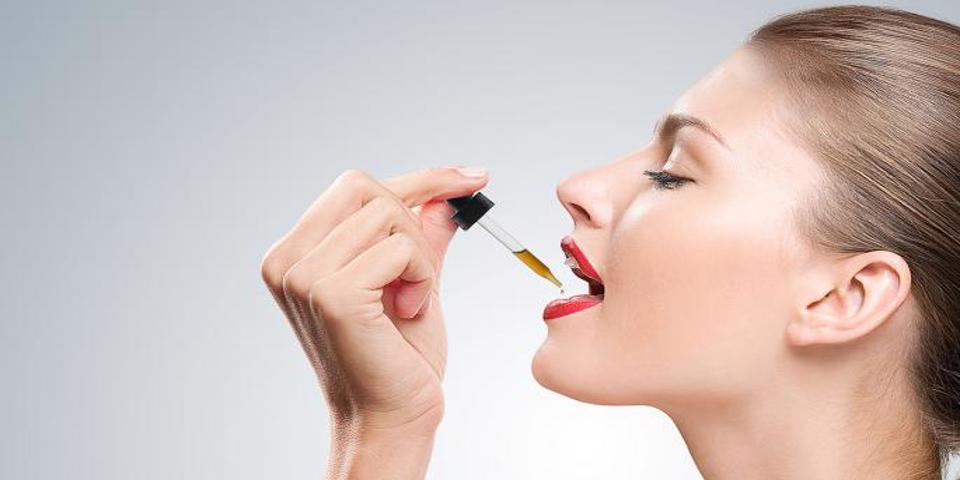
People may drip CBD oil under their tongues; ingest CBD oil mixed with water or another solvent so it gets absorbed in the gut; smoke the oil from a vaporizer; drink CBD-infused beverages, or apply it topically on the skin.
Studies point to CBD as a promising treatment for over 50 conditions, including:
- Acne
- ADHD
- Addiction
- ALS (Lou Gherig’s Disease)
- Alzheimer’s
- Anorexia
- Anxiety
- Arteriosclerosis
- Arthritis
- Asthma
- Autism
- Bipolar Affective Disorder
- Cancer-General
- Cancer – Lung
- Cancer – Prostate/Colon
- Cancer – Breast
- Cancer – Brain
- Cancer – Leukemia
- Cancer – Skin
- Cancer – Endocrine
- Cancer – Bladder
- Cancer – Pain Relief
- Crohns and Colitis
- Depression
- Endocrine Disorders
- Fibromyalgia
- Heart Disease
- Huntington’s Disease
- Inflammation
- Irritable Bowel Syndrome
- Kidney Disease
- Metabolic Syndrome
- Migraines
- Mood Disorders
- Motion Sickness
- Multiple Sclerosis
- Nausea
- Neurodegeneration
- Neuropathic Pain
- Obesity
- OCD
- Parkinson’s Disease
- Prion Disease
- PTSD
- Rheumatism
- Schizophrenia
- Sickle Cell Anemia
- Skin Conditions
- Sleep Disorders
- Spinal Cord Injury
- Stress
- Stroke/TBI
How Long Until You Experience the Effects of CBD Oil?
How long it takes for you to feel the effects of CBD oil depends on how you ingest it. Consider the following methods:
- Vapor: CBD vapor from a vaporizer or “vape pen” is quickly absorbed through the lungs and may take effect in as little as five minutes.
- Tinctures: Mixed with water and alcohol, tinctures are quite strong. When dissolved under the tongue, it will likely take effect in under an hour.
- Beverages: CBD drinks must be passed through the digestive system. It could take between two and five hours for your gut to absorb it.
- Topicals: CBD does not absorb through the skin as quickly as it does through other membranes. Topical CBD makes its presence felt in about six hours.
- Edibles: CBD edibles, like cookies or gummies, must share gut space with the carrier food. It will probably take between six and eight hours to fully absorb.
The effects of high-concentration CBD may last between two and six hours, but trace amounts of CBD may remain in the body for three or four days.
Note that the faster the absorption, the faster the effects are likely to wear off. The effects of slow-absorbing topical CBD may last for days.
Can You Microdose on CBD?
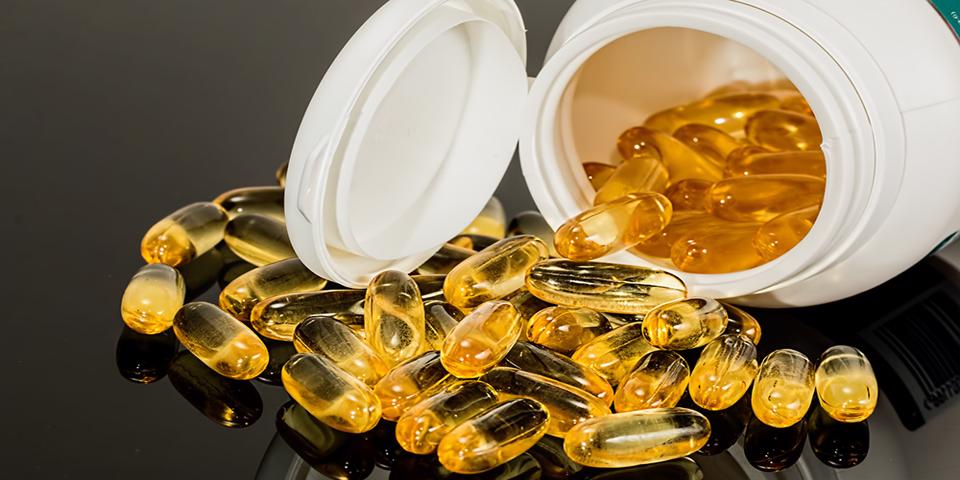
In short, yes. The concept of microdosing evolved from the notion that small, consistent doses of certain psychoactive substances, below the dose required for a psychoactive effect to kick in, offered health and cognitive benefits over time.
While CBD oil may be taken temporarily or in higher doses to treat acute conditions like pain or anxiety attacks, the principles of microdosing may apply to CBD oil.
CBD oil is not a psychoactive substance, but it has demonstrated the propensity to reduce inflammation, improve mood, and boost cognitive function, alongside other beneficial effects.
Small, consistent doses of such a compound could lead to an overall lessening of inflammatory conditions, pain, and mood disorders like depression or anxiety.
Additionally, CBD may help your endocannabinoid system attach to more natural cannabinoids, helping your body achieve internal balance.
CBD Oil and Pain
Compared to other conditions, the effects of CBD on acute or chronic pain are relatively well studied.
For example, endocannabinoid receptors play a large role in regulating pain and inflammatory responses to osteoarthritis. Rats afflicted with arthritis showed reduced nociception (acute pain response) patterns when administered either CBD or a synthetic CBD analog.
Exactly how CBD reduces pain is little understood. It seems to reduce inflammation and promote body homeostasis. Some researchers speculate that CBD and THC may be a more powerful analgesic combination than CBD alone. However, THC remains illegal throughout much of the US and the world.
62% of CBD oil users rely on the compound to treat chronic pain, joint pain, and arthritis pain.
CBD Oil and Epilepsy

CBD is an active ingredient in one FDA-approved medication used to treat two rare forms of epilepsy.
The oral medication Epidiolex is indicated for Dravet Syndrome and Lennox-Gastaut Syndrome, which affects patients as early as the age of two.
The seizures associated with Dravet Syndrome can be life-threatening and inhibit language, social, and motor skill development in young children.
Lennox-Gastaut Syndrome produces tonic seizures and often correlates with learning disabilities, cognitive impairment, and reduced motor skills. Patients may require assistance with activities of daily living.
Epidiolex is the first FDA-approved medication to contain CBD. The anti-epileptic effects of CBD are not well understood, but may relate to the endocannabinoid system’s ability to regulate internal balance.
CBD Oil for Depression and Anxiety

Very little research confirms the anti-depressant or anti-anxiety effects of CBD oil. However, anecdotal evidence maintains the popularity of CBD as a supplement for people suffering from anxiety or depression.
A 2014 animal study observed a reduction in depressive or anxious behavior in animals when administered CBD.
This effect is not well understood. Clinical depression and generalized anxiety disorder have been linked to low serotonin levels. CBD oil does not replicate serotonin or stimulate the brain to produce more serotonin. However, researchers hypothesize that its effect on brain receptors could allow the brain to more efficiently absorb the serotonin already present.
Doctors are quick to point out that CBD oil is not a substitute for prescribed medication and caution patients against quitting a regimen of antidepressants or anti-anxiety meds.
However, CBD oil has several attractive benefits over psychiatric medications. It acts quickly, whereas drugs typically must build up in your system over several weeks. It also may produce fewer adverse side effects.
CBD Oil and Autism

Roughly 1% of the population is suspected to suffer from some degree of Autism, a neurological difference that makes it hard for the patient to communicate and develop emotionally or socially. The causes are unknown.
CBD oil may offer persons on the Autistic spectrum hope for a more normal life. A small, groundbreaking Israeli study documented the treatment of autistic children with high-concentration CBD oil for a period of 7 months.
Study subjects demonstrated an 80% reduction in problematic behavior like outbursts or unwillingness to be touched. Increased communicativity, including language skills for previously non-verbal study subjects, was also reported.
CBD Oil to Quit Smoking
The endocannabinoid system may play a role in nicotine addiction.
A preliminary study of 24 cigarette-smokers who wanted to quit instructed subjects to use an inhaler when they felt the urge to smoke. Twelve subjects received CBD in the inhalers; twelve received a placebo.
The subjects who received the placebo reported no reduction in cigarettes consumed. The subjects who received CBD in their inhalers reported a 40% reduction in cigarette consumption.
More testing is needed, but this preliminary data indicates the potential for CBD to aid in treating nicotine addiction.
CBD Oil and Alzheimers
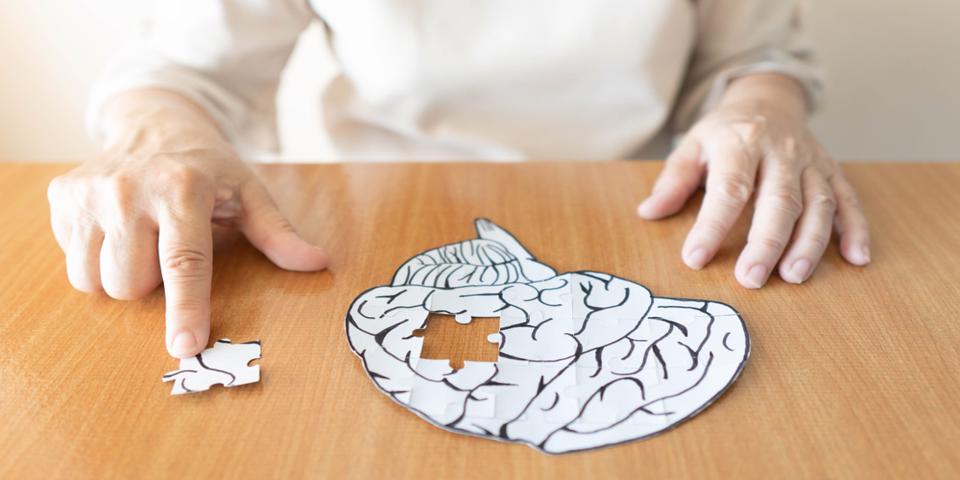
Many early tests have demonstrated the promise of CBD and other cannabinoids to alleviate symptoms of Alzheimer’s disease and other forms of dementia.
The endocannabinoid system seems to play a role in fighting Alzheimer’s. At the time of death, Alzheimer’s patients show an increase in endocannabinoid activity, indicating that the body was using the system to try and correct the effects of cannabinoids.
Researchers have reason to believe that stimulating the endocannabinoid system, as CBD may do, could help fight the symptoms of Alzheimers.
CBD improved symptoms of dementia in animal trials. The first human trials are underway in the UK.
CBD Oil and Parkinson’s Disease

Parkinson’s Disease affects the nervous system, impeding the brain’s ability to produce dopamine, a neurotransmitter critical to movement and motor skills. The condition typically manifests at 60 years of age or older and causes tremors, impaired balance, slack facial muscles, and stiffness. As the disease progresses, it may become hard to walk, swallow, and speak.
Patients with Parkinson’s Disease typically experience depression, anxiety, and apathy. Ultimately the condition can lead to dementia, hallucinations, and other cognitive disorders.
CBD has not been studied extensively as a treatment for Parkinson’s Disease. However, the compound’s effect on neuroreceptors may stimulate the production of dopamine, which may alleviate symptoms. CBD oil may also alleviate depression, anxiety, and other mood disorders associated with this difficult condition.
CBD Oil and Multiple Sclerosis
Multiple Sclerosis (MS) affects the brain and the spinal cord. The immune system attacks the membrane, known as the myelin sheath, that forms around nerve cells. This causes a range of painful or debilitating symptoms, including numbness, tingling, spasms, fatigue, and paralysis.
Episodes may come out of nowhere followed by periods of remission, or the condition can progress. Individuals with advanced progressive MS may require assistance with activities of daily living.
Preliminary studies of the treatment of MS patients with cannabinoids showed a reduction in muscle spasms and an alleviation of symptoms like pain. However, these studies administered a compound containing both CBD and THC.
CBD Oil and ALS

Amyotrophic lateral sclerosis (ALS), also known as Lou Gherig’s Disease, kills the neurons that control voluntary muscles. Muscles twitch, stiffen, and become weak, eventually shrinking. Patients may lose the ability to walk, speak, swallow, or breathe.
No cure exists. Current treatments attempt to alleviate symptoms, which usually include pain.
Cannabinoids have antioxidant, anti-inflammatory, and neuroprotective properties, all of which may treat the symptoms or slow the progression of ALS. Administering cannabinoids to animals with comparable conditions resulted in moderate relief of symptoms.
However, the animals in these tests were administered multi-cannabinoid compounds, including THC as well as CBD. No studies have examined the effect of CBD oil alone on ALS. However, ALS causes distress in many patients, including anxiety and depression, which CBD oil may help alleviate.
CBD Oil and Acne
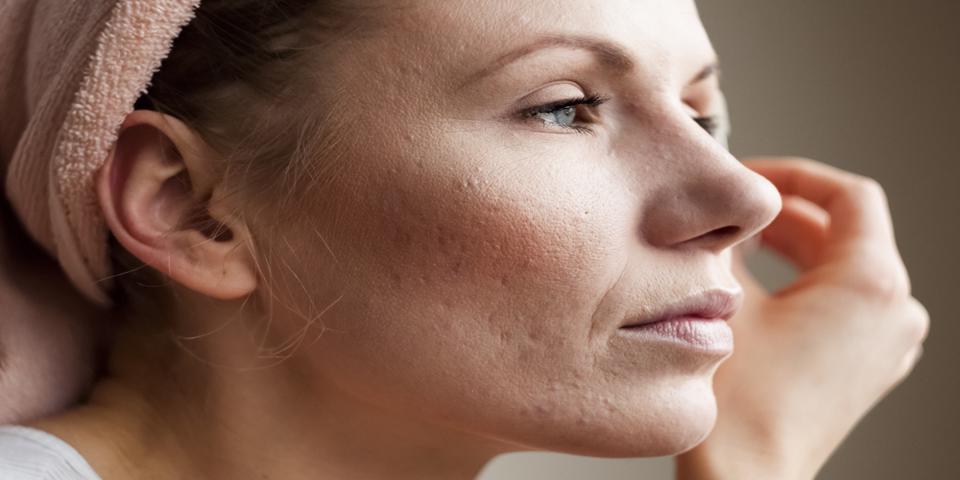
Acne vulgaris causes blemishes (“pimples”) to appear on the face and other parts of the body as a result of subcutaneous oils and (in some cases) bacterial infections that cause an inflammatory response.
Considered a routine part of adolescence, when the face produces an excess of oils, acne actually correlates with a 7.1% increase in suicidality. There is a reasonable case to be made that acne is “life-threatening” in its own way.
CBD oil has shown promise in preliminary tests to both reduce inflammation and reduce the production of oil by the skin. As such, CBD could provide relief to patients suffering from acne when taken orally, applied topically, or digested.
CBD Oil and Cancer
Over 100 types of cancer afflict tens of millions of people every year. Damaged or mutated cells multiply out of control, sometimes forming malignant tumors, metastasizing throughout the body, and threatening the life of the patient. For millions, a cancer diagnosis will prove fatal. In some cases the treatments, like chemotherapy, radiation, and invasive surgery, seem worse than the cures.
Cancer has been a top target of medical research—billions of dollars pour into the search for a cure for cancer. And yet, as hard as researchers work, our understanding of cancer progresses frustratingly slowly, while time runs out for millions of suffering patients.
Research on the effects of CBD on cancer is ongoing, but the early results show promise. Cannabidiols like CBD and THC seem to inhibit tumor growth on their own. When combined with traditional treatments like radiation or chemotherapy, they seem to speed up the reduction of tumor size.
Why this happens is unclear. It may be related to the way the endocannabinoid system regulates body homeostasis, inhibiting the proliferation of rogue cells.
CBD Oil and Diabetes
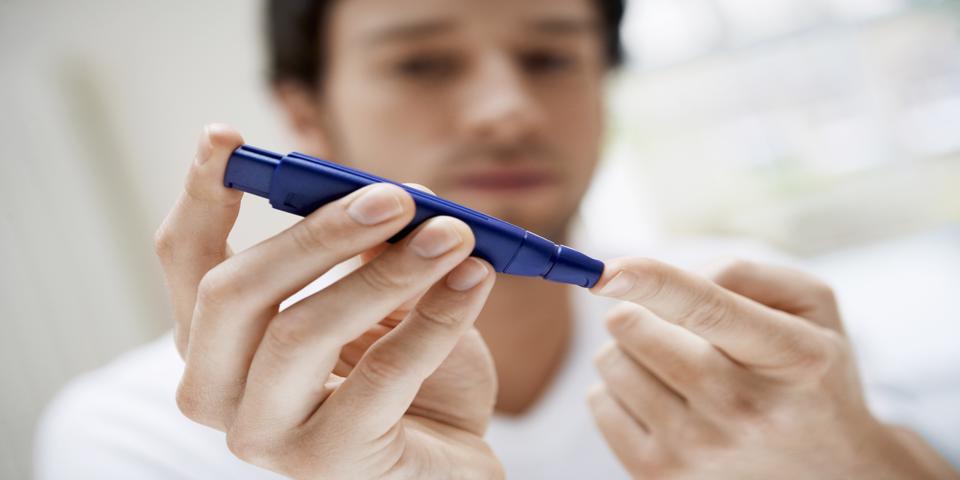
Type 1 diabetes is caused by inflammation of the pancreas due to invader cells, which destroy the beta cells that produce the hormone insulin–and insulin is critical for the regulation of blood sugar. Diabetics require insulin supplementation and face a number of debilitating health concerns.
The promise of CBD to reduce inflammation and restore homeostasis to the body may offer a new avenue of treatment for patients suffering from type 1 diabetes.
No human trials have been conducted. However, encouraging results have come from animal testing. Mice with type 1 diabetes were treated with CBD and showed a subsequent reduction in leukocyte activation and functional capillary density (FCD). Both of these reductions indicate a reduction in pancreas inflammation.
CBD Oil and Insomnia / Sleep Conditions
70% of US adults report that the get insufficient sleep. The CDC estimates the actual number of pathological insomniacs at closer to one-third of the adult population—still a lot of sleepless nights.
CBD oil seems to boost the activity of the endocannabinoid system, a series of receptors that aid in body homeostasis. The body needs this homeostasis to lock in on a healthy sleep cycle.
Anecdotal evidence has suggested CBD oil could help with wakefulness during daylight hours and aid in a healthy sleep cycle at night, even in less-than-ideal sleeping conditions like noise or an uncomfortable bed.
CBD may also effectively treat chronic pain, PTSD, and anxiety, conditions associated with disruptions of the sleep-wake cycle. By treating these underlying causes, users may be able to achieve a better night’s sleep.
In a 2019 study conducted by Shannon, Lewis, Lee, and Hughes, in which 103 adults were administered CBD oil, 66.7% of test subjects reported better sleep; 25.0% of test subjects reported worse sleep.
CBD Oil and Lupus
Lupus affects an estimated 1.5 million people, with as many as 16,000 new cases reported daily. Most common in females ages 15 to 44, the autoimmune disease causes the immune system to attack healthy organ systems through a cycle of flare-up and remission. This results in painful inflammation, often localized around joints.
Lupus may also induce a characteristic rash on the face in the shape of a butterfly. The condition received substantial media attention when singer Selena Gomez announced her diagnosis with lupus in her late teens.
Causes may be genetic and there is no cure. Current treatments focus on reducing inflammation and managing pain during flare-ups.
Little peer-reviewed research supports the effectiveness of CBD oil to treat lupus. However, preliminary research confirms the anti-inflammatory, balancing, and pain-reducing effects of CBD oil. People living with lupus may consider this non-addictive, legal supplement well worth a try.
CBD Oil and Crohn’s Disease

A subset of inflammatory bowel disease (IBD), Crohn’s disease can cause bloody diarrhea, rectal bleeding, abdominal distress, and fever during flare-ups. Most treatments focus on reducing the inflammation of the bowel.
An Israeli study produced encouraging results by administering cannabinoid oil to patients with Crohn’s Disease. After two months of administration, 65% of subjects receiving cannabis oil met the criteria for full remission. Only 35% of the group who received the placebo presented remission.
This may indicate the effectiveness of cannabinoids as anti-inflammatory agents. However, the compound administered to the test subjects was not the near-pure CBD oil legal throughout the United States and other countries. The oil contained 15% CBD and 4% THC. This is a higher concentration of THC than allowed by Federal law. THC also differs from CBD in that it can bind directly to CB1 receptors.
The effectiveness of pure CBD oil on symptoms of Crohn’s disease, colitis, and other forms of IBD must still be confirmed with further testing.
CBD Oil and Huntington’s Disease
The progressive genetic condition Huntington’s Disease causes nerve cells in the brain to degrade. Affecting less than 1% of the population, the condition usually does not manifest until later in life, often after people who have inherited it have already had children, thus inadvertently passing the gene on to their offspring.
Over time, the patient’s cognitive and motor functions become impaired. Psychiatric abnormalities are common. Eventually, the patient will require assistance for all activities of daily living. Treatment plans focus on reducing pain and maintaining quality of life.
Little research has been conducted on the effects of CBD or other cannabinoids on the symptoms of Huntington’s Disease. However, CBD has shown the ability to protect nerve cells, reduce pain, and decrease inflammation. It may also reduce stress and anxiety, which could be critical to help patients cope with this distressing condition.
CBD Oil and Cardiovascular Diseases
CBD shows growing promise as a treatment for cardiovascular diseases. The compound has been shown in animal tests to relax blood vessels, protect the heart from damaging high-glucose environments, reduce cardiovascular inflammation, and aid in white blood cell movement to fight diseases or platelet collection to internally plug wounds.
Animal tests have also demonstrated the ability of CBD to reduce cardiac infarct size and improve blood flow in the event of a stroke.
As such, CBD may be an effective treatment for high blood pressure and may reduce the risk of heart attacks or strokes.
CBD Oil and Muscle Spasms

Muscle spasms or cramps (involuntary and often painful contractions) happen for a variety of reasons, including dehydration, magnesium deficiency, multiple sclerosis, and the aftereffects of injury.
Muscles that cramp or spasm tend to be inflamed. The anti-inflammatory properties of CBD could help reduce the occurrence of or the pain associated with muscle spasms. This effect requires further study, but may relate to the interaction of CBD with the endocannabinoid system, a series of receptors responsible for body homeostasis.
CBD Oil and PTSD
6.1% of Americans will experience post-traumatic stress disorder (PTSD) in their lifetimes for a variety of reasons. Worldwide, that number is closer to 10%.
Often following in the wake of a traumatic experience, this psychological disorder presents with moodiness, nightmares, avoidance of triggers, and cognitive impairment. Psychiatric medications and psychotherapy are the most common treatments.
CBD may help patients suffering from PTSD due to its activation of the CB1 and CB2 receptors, which regulate internal balance. This has been shown to improve the sleep cycle, balance moods, and reduce anxiety and depression.
CBD Oil and Obesity

CB1 receptors are common in the brain, but also in the fat cells of people suffering from obesity. This suggests a role of CBD and other cannabinoids in the treatment of obesity.
CBD may help manage appetite by increasing the activity of CB1 “agonists” (compounds that block the receptors). This could help prevent overeating, a key factor in obesity. Studies of rats in 2012 showed a reduction in appetite when the rats received CBD.
A 2016 study further indicated that CBD could help the body turn “white” fat into “brown” fat. Brown fat helps the body burn calories, while white fat is a risk factor for a number of obesity-related chronic conditions. A further study in 2018 indicated a possible burning of fat due to this effect.
Reducing obesity could help reduce the incidence of high blood pressure, elevated cholesterol, and Type 2 diabetes.
Tests of CBD on rats showed a 25% reduction in cholesterol, decreases in blood sugar levels, and increases in liver function.
CBD Oil and Anorexia
Anorexia nervosa is a psychiatric eating disorder and a form of body dysmorphia. People with the condition see themselves as physically repulsive and respond to this dissatisfaction by starving themselves, compulsively exercising, or both. Anorexia nervosa kills more people than any other psychiatric condition.
No conclusive research indicates CBD as a treatment for anorexia nervosa. However, certain observed properties of CBD oil make it promising. CB1 receptors may trigger both appetite and the “reward” effect of food, making food enjoyable. CBD does not attach to the CB1 receptors, but it may stimulate the body to produce more of its own endocannabinoids, which do attach to the CB1 receptors.
This is more complicated than the “munchies” associated with marijuana consumption. Endocannabinoid receptors play a role in internal balance. This has the beneficent inverse effect of reducing appetite in obese persons, at the same time as it may increase appetite in malnourished people.
Lack of appetite or enjoyment of food is far from the only problem faced by anorexic persons. The ability of CBD to reduce depression and anxiety may help alleviate the underlying psychological roots of the condition.
CBD Oil for Asthma

Asthma is a respiratory condition where the bronchial tubes spasm, constricting the airway and impeding respiration. Unable to breath, a patient in the midst of an acute asthma attack is at risk of death from brain hypoxia.
The condition is usually treated with an aerosolized bronchodilator, a medication that opens the bronchi, ingested using an inhaler. These can be very effective, but anxiety and increased heart rates are common side effects.
In a preliminary study performed by Allan Frankel, MD, patients’ FEV1 (forced expiratory volume over one second) and PEF (peak expiratory flow) were measured before and after a three-drop dose of CBD oil. Both FEV1 and PEF nearly doubled after the dose of CBD.
This effect would suggest CBD to also be a bronchodilator—that is, it causes the bronchial tubes to expand, exactly what an asthmatic with constricted bronchial tubes needs to breathe more easily.
The anti-inflammatory effects of CBD also help relieve the beleaguered airway.
Patients who still use stimulant inhalers may discover relief from the ensuing anxiety in CBD’s anxiolytic effects.
CBD Oil for Lung Cancer

Lung cancer carries with it a very poor prognosis, with a high rate of relapse, non-responsiveness to treatment, and ultimately death. Lung cancer correlates with cigarette smoking, but it can also spontaneously occur due to genetics or other unknown factors.
A high dose of CBD oil may be responsible for the dramatic improvement of at least one case of lung cancer in an 81-year-old man. However, this is anecdotal. Further testing is needed before the effectiveness of CBD oil to treat lung cancer can be assessed.
CBD oil may play a role in alleviating the pain associated with lung cancer, nausea associated with treatments, and mood disorders stemming from the diagnosis.
CBD Oil for Leukemia

Dangerously hard to detect in the early stages, leukemia causes the bone marrow to produce abnormal white blood cells in excess, hindering the body’s ability to fight infections. The five-year survival rate in adults is only 57%. A form of cancer, leukemia may be treated with chemotherapy, bone marrow transplants, stem cell therapy, and other treatments.
CBD and THC have been shown to prevent or impede cancer on their own. When paired with traditional cancer treatments like chemotherapy, they have been shown in early testing to increase the efficiency with which the treatments destroy cancerous cells.
The effectiveness of CBD as a cancer treatment is not well understood. Further testing is needed.
CBD Oil Risks and Warnings
In November 2019 the US Food and Drug Administration (FDA) issued a stern warning that kicked off “CBD has the potential to harm you.” The laundry list of risks compiled in the warning included:
- Liver injury (stemming from side effects of Epidiolex, the only FDA-approved drug to contain CBD)
- Adverse interactions with other drugs
- Adverse interactions with alcohol
- Gastrointestinal distress
- Infection
- Agitation or irritability, mood effects associated with stimulants
- Exacerbation of depression or suicidal thoughts
Little research exists to back up these warnings. Of course, little research has been done on CBD at all due to its short history of legality (although extensive testing is underway).
All available data suggests that nearly all adults tolerate CBD extremely well, with mild drowsiness the only notable and non-universal side effect. CBD has never shown to be addictive.
Is CBD Oil Safe for Pregnant Mothers?

Supplementing with CBD oil may appeal to pregnant women for many reasons, including:
- Pain relief
- Nausea reduction
- Quitting smoking
- Improved sleep quality
- Less anxiety or depression
For the protection of the baby, however, expectant mothers get a laundry list of “no-nos,” ranging from the usual suspects like alcohol and opioids to fun entries like tuna or soft cheeses. Does CBD oil belong on this pregnancy “don’t” list?
Doctors and medical professionals may consider CBD to be close to harmless. Some doctors even recommend CBD oil as a pregnancy supplement to maintain the homeostasis of both the mother and the baby.
That said, very little research has explored the effects of CBD oil on pregnant women and the fetus inside of them. Most doctors recommend caution.
If a pregnant woman wants to try or continue CBD oil dosing, the closest thing to a consensus goes like this:
- Use CBD isolate, not full-spectrum CBD oil.
- Start with a small dose.
- Track your progress and note any unexpected effects.
THC passes into breast milk, but no studies indicate if the same applies to CBD, nor do they indicate adverse effects of CBD on infants. Research is limited, however, and many new mothers prefer not to risk it.
Summary
CBD is one of the most remarkable products in recent memory.
Whether it’s a fad or a full-blown phenomenon, CBD oil has taken the United States by storm since becoming Federally legal 2018.
To recap, CBD oil is:
- A compound derived from the cannabis plant (e.g. hemp, marijuana), legally extracted from industrial hemp and sold in most of the United States without a prescription.
- Not the same thing as marijuana. Over-the-counter legal CBD oil contains little or no THC, the psychoactive ingredient of marijuana.
- Expected to approach $4 billion in sales by 2023, up from $202 million in 2015.
- Uniquely suited to the endocannabinoid system, a system of natural receptors that regulates your internal homeostasis.
- Used by people of all ages to alleviate a variety of conditions or promote general wellbeing.
- Fast-acting and versatile, able to be taken orally, topically, or inhaled as vapor.
Lots of people are getting rich in the “Green Boom” propelled by the demand for this hemp-derived distillate.
Perhaps more importantly, lots of people are claiming that CBD oil has changed their lives for the better—reducing their chronic pain, improving their mood, improving their quality of life, sometimes when nothing else did. To hear its adherents tell of it, CBD oil is some kind of “miracle cure.”
Time, and further research, will tell how miraculous CBD oil actually is. For the time being, preliminary tests have shown CBD to be effective as:
- A pain reliever
- An antioxidant
- An anti-inflammatory
- An anxiolytic (anti-anxiety agent)
- An antidepressant
- A sleep aid
- A bulwark against cancer
… all this in a botanical that seems to be non-toxic, non-addictive, and carry few-to-no adverse side effects for most demographics.
Not bad for a plant-based compound that, just a few short years ago, sat alongside heroin on the Drug Enforcement Agency list of Schedule 1 Narcotics!

